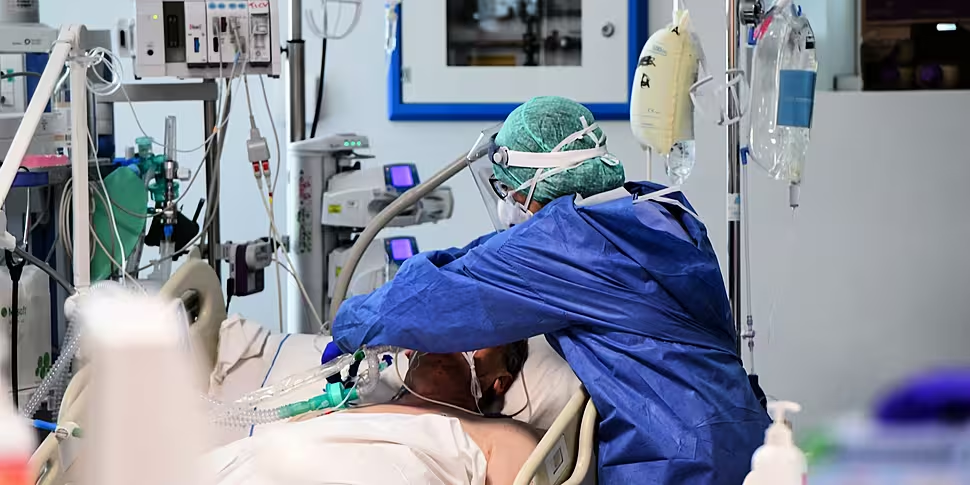Some nurses who are self-isolating at home are being asked to come back early due to staffing pressures in hospitals.
That is according to the Irish Nurses and Midwives Organisation (INMO), which says there is not enough surveillance testing of medical workers being carried out.
At Naas Hospital in Co Kildare, 87 staff members are currently off work due to contracting COVID-19 or being a close contact of a confirmed case.
Joe Hoolan, industrial relations officer with the INMO, told Pat Kenny there are problems in some hospitals with staff being told to return to work.
"The HSE have been derogating staff to come back to work before their isolation period has ended.
"And that is a huge concern - we've been been consistently raising this with the Department of Health, with Public Health and with the acute hospital sector itself.
"So staff who might be told 'You're a COVID positive contact, you now have to self isolate', those staff can be derogated by senior management to come back to work unless they show symptoms.
"We think that's absolute madness - those staff should remain out of work".
He added that those who come back to work early "are not tested, their temperature is monitored twice a day".
"It is a joke".
'Asymptomatic carriers'
"There are a number of hospitals who continue to have outbreaks among patients and among staff.
"The difficulty that arose in Naas was, because of the size of the hospital and the number of staff involved, it was a patient safety issue.
"Inpatient ward rosters were severely depleted, and management really had no option at that stage but to cancel all non-essential services.
"That really is the fallback that managers have - there is not the staff out there to come in and replace staff who've gone sick with COVID, or who are contacts of COVID cases."
"But of equal concern was the fact that patients within the hospital themselves, who had been in hospital for quite some time, were becoming positive with COVID... and the concern was that staff were asymptomatic carriers."
But he said surveillance swabbing is non-existent in the acute hospital sector.
"It would be great to have swabbing done every day, the logistics of that I think from the HSE at the moment just aren't there.
"But at the moment we have no swabbing in the acute hospital sector, and arguably there are people who are in work today who are asymptomatic carriers of COVID and we don't know who those people are.
"From the INMO's perspective we've been calling for regular surveillance swabbing in the acute sector, as there is in the care of the elderly setting.
"The more swabbing is done, the better - the difficulty for the service will be if staff are seen to have or diagnosed with COVID positive tests, those staff will be out of work but that is the safest thing to do".









